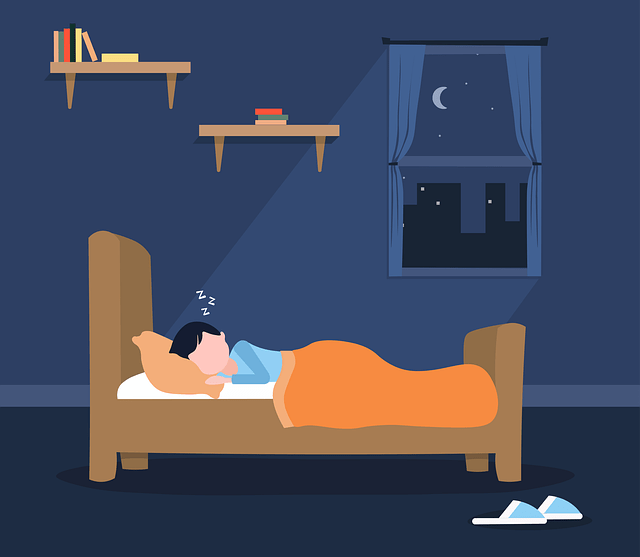A new study investigates the potential effects of low-quality sleep on brain development in early adolescence.
It’s no secret that sleep is crucial for optimal health and well-being.
Many different functions occur during periods of sleep, and the body takes that time to repair, rest, and rejuvenate itself.1
Research shows that sleep may play an important role in brain health, cardiovascular health, metabolic health, the immune system, and more.1,2
Despite its importance, many people do not get enough or insufficient-quality sleep; one study conducted by the Centers for Disease Control and Prevention (CDC) found that over 37 percent of U.S. adults reported sleeping less than seven hours each night.3 This may be due to a variety of reasons, including time constraints, stress, sleep disorders, and more.2
However, this can have a variety of adverse effects and could potentially be associated with an increased risk of certain conditions, including cardiovascular disease, diabetes, and depression.1
One particularly important aspect of sleep is its association with optimal cognitive health.
Studies show that sleep may be important for memory, critical thinking, and overall cognitive function.4
Not much is known about the effects of sleep on brain development in adolescence; however, adolescence is a crucial period in establishing thought processes throughout adulthood.5 Moreover, teens need more sleep; the CDC recommends that teenagers between 13 and 18 years of age aim for between eight and ten hours of sleep nightly.6
One study in Massachusetts, USA, investigated the potential implications of low-quality sleep on brain development in teenagers.7
The findings were published in Cerebral Cortex Communications.7
The study group included 5,566 children with a median age of 10 years, and a variety of methods were used to measure sleep quality.1
The primary method was a survey called the Sleep Disturbance Scale for Children, which asked parents a variety of questions about their children’s sleep quality.7,8
The study found that low-quality sleep, characterized by frequent waking periods, abnormal breathing patterns during sleep and lower sleep duration, was associated with signs of decreased cognitive health.7
This included decreased attention, cognitive flexibility, and physical changes in numerous parts of the brain, such as the hippocampus, cerebellum, and thalamus.7
These are regions of the brain responsible for memory, learning, space perception, balance, and communication within different areas of the brain.7,9
This study suggests that low-quality sleep in early adolescence could potentially be associated with decreased cognitive health and physical changes; however, more research is needed to confirm these findings.7
More research is also needed to determine whether these changes could have an impact on brain development and cognitive health throughout adulthood.
References
- National Institute of Neurological Disorders and Stroke (2019, August 13). Brain Basics: Understanding Sleep. National Institutes of Health: United States Department of Health and Human Services. Accessed 2021, November 28, from https://www.ninds.nih.gov/Disorders/Patient-Caregiver-Education/Understanding-Sleep
- Luyster, F.S., Strollo, P.J., Zee, P.C., & Walsh, J.K. (2021, June 1). Sleep: A Health Imperative. Sleep 35(6): 727-734. Doi: 10.5665/sleep.1846
- Centers for Disease Control and Prevention (CDC). (2011, March 4). Effect of short sleep duration on daily activities — United States, 2005-2008. MMWR Morb Mortal Wkly Rep 60(8): 239-242. Accessed 2021, November 28, from https://pubmed.ncbi.nlm.nih.gov/21368739/
- Deak, M.C., Stickgold, R. (2010, July 1). Sleep and Cognition. Wiley Interdiscip Rev Cogn Sci 1(4): 491-500. Doi: 10.1002/wcs.52
- Health Encyclopedia (n.d.) Understanding the Teen Brain. University of Rochester Medical Center: Rochester, NY, USA. Accessed 2021, November 28, from https://www.urmc.rochester.edu/encyclopedia/content.aspx?ContentTypeID=1&ContentID=3051
- CDC Healthy Schools (2020, September 10). Sleep in Middle and High School Students. Centers for Disease Control and Prevention (CDC): U.S. Department of Health & Human Services. Accessed 2021, November 28, from https://www.cdc.gov/healthyschools/features/students-sleep.htm
- Brooks, S.J., Katz, E.S., Stamoulis, C. (2021, October 26). Shorter Duration and Lower Quality Sleep Have Widespread Detrimental Effects on Developing Functional Brain Networks in Early Adolescence. Cerebral Cortex Communications tgab062. Doi: 10.1093/texcom/tgab062
- Bruni, O., Otaaviano, S., Guidetti, V., et al (1996, December). The Sleep Disturbance Scale for Children (SDSC). Construction and validation of an instrument to evaluate sleep disturbances in childhood and adolescence. J Sleep Res 5(4): 251-261. Doi: 10.1111/j.1365-2869.1996.00251.x.
- Johns Hopkins Medicine (n.d.) Brain Anatomy and How the Brain Works. Johns Hopkins University, The Johns Hopkins Hospital, and Johns Hopkins Health System. Accessed 2021, November 29, from https://www.hopkinsmedicine.org/health/conditions-and-diseases/anatomy-of-the-brain
Image by Hatice EROL from Pixabay
Other topics that may be of interest:
- Effects of Evening Smartphone Use on Sleep and the Autonomic Nervous System
- What is the best alarm sound to wake up to?
- Link between lack of sleep and cognitive decline
- New app to monitor Parkinson’s disease: SleepFit
- Parental and educational involvement against sleep deficit in adolescence
- Not getting enough sleep can negatively affect bone health in women



